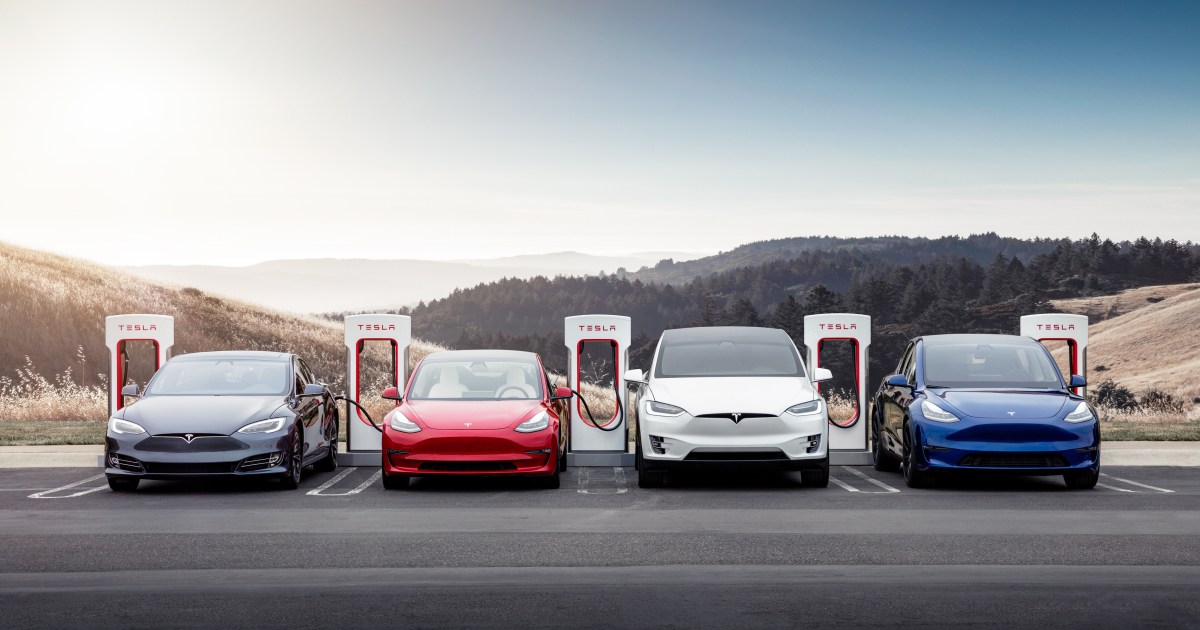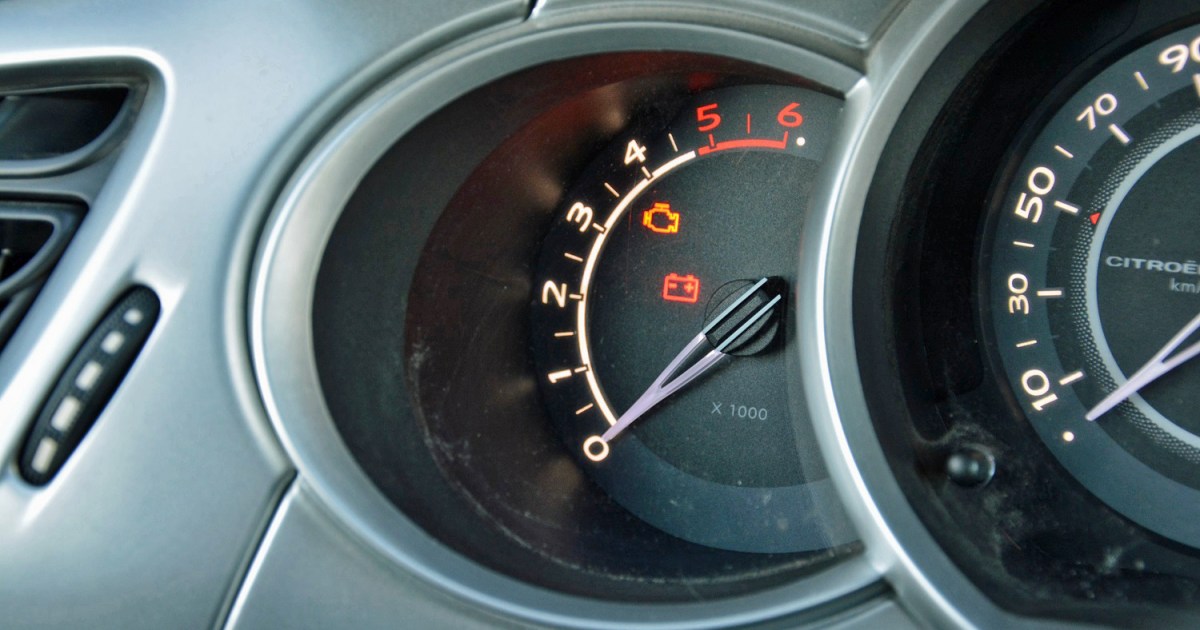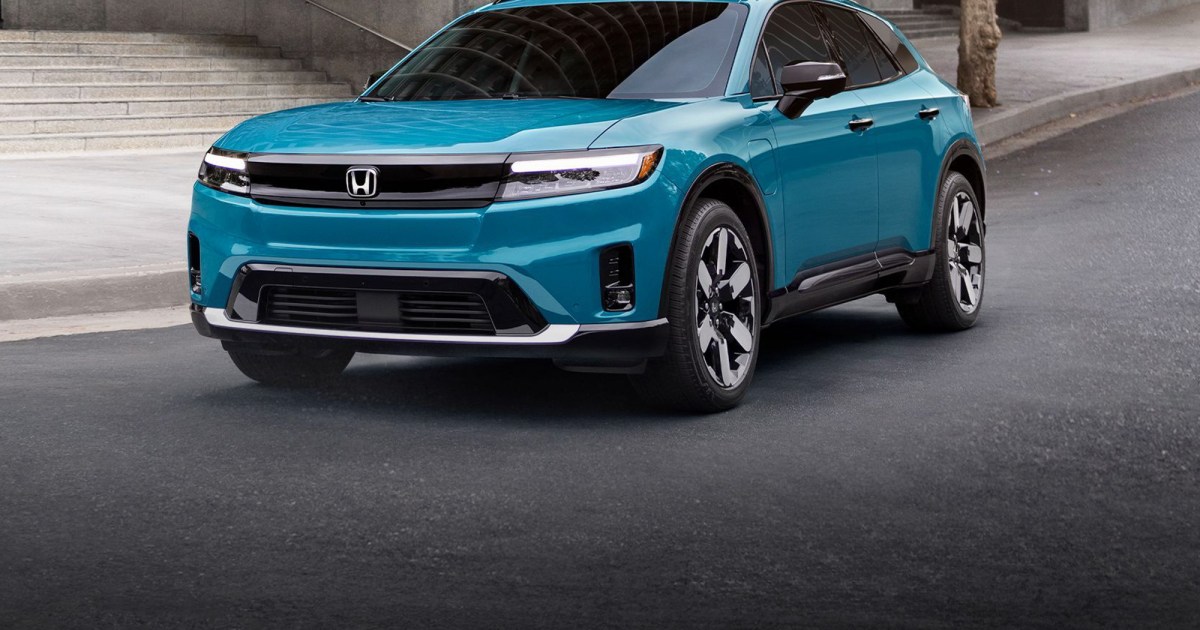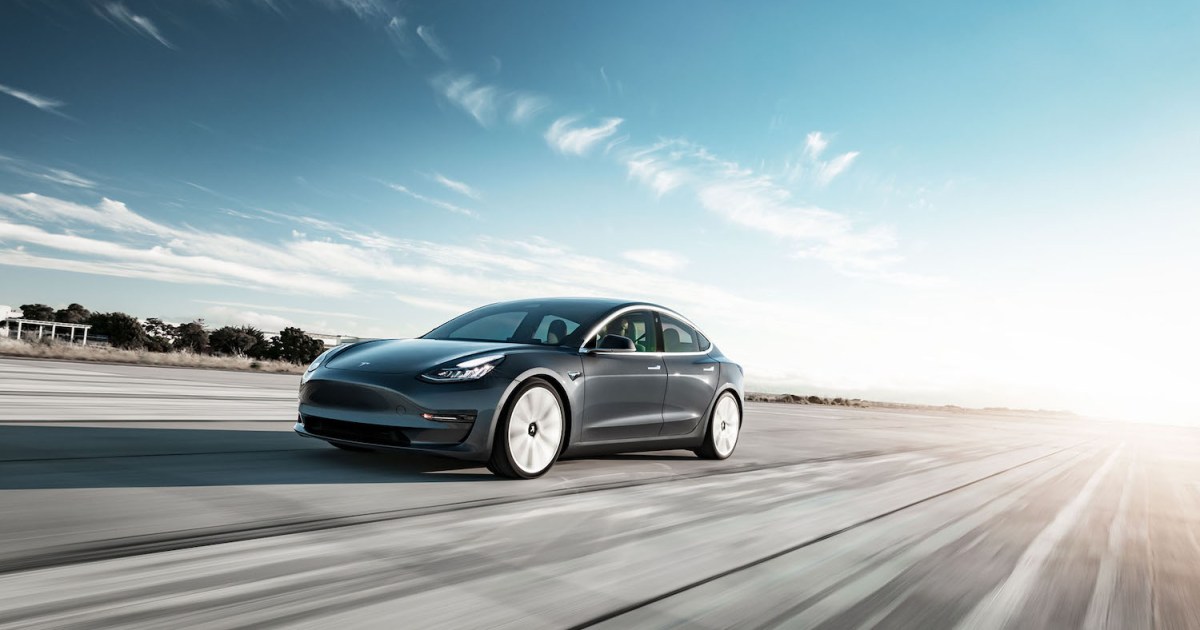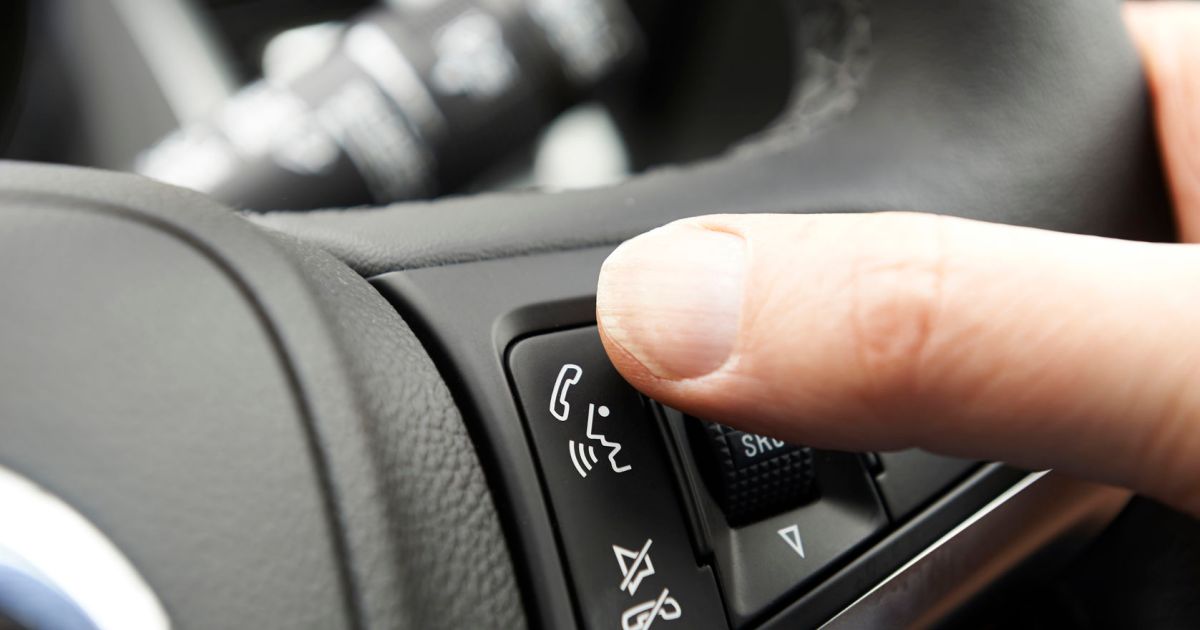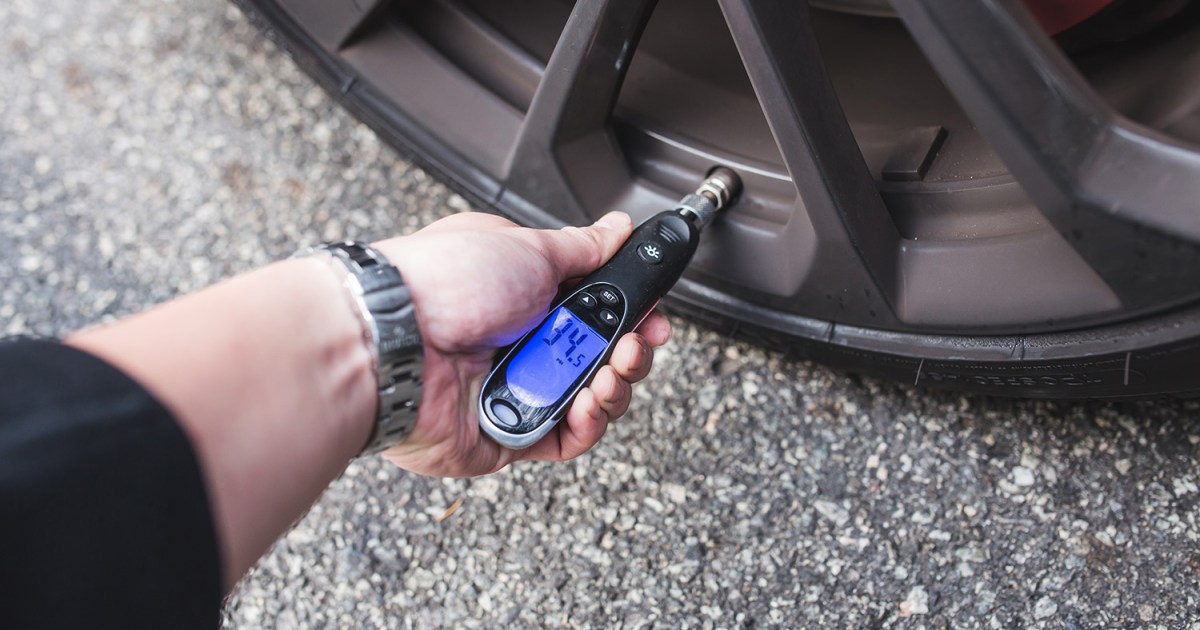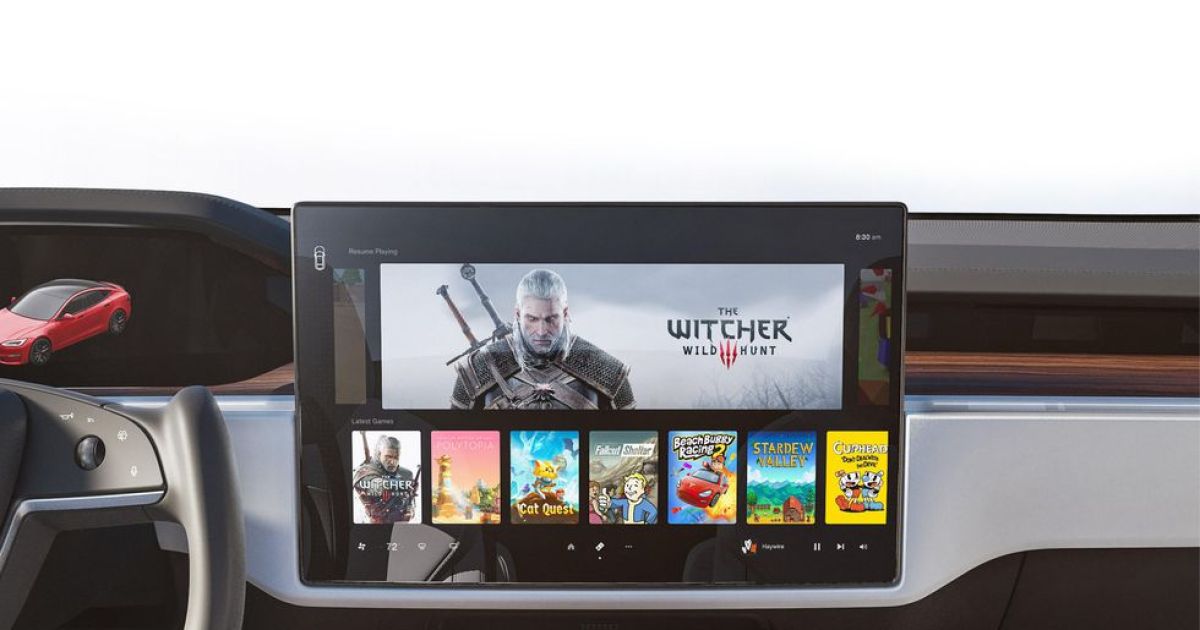Tesla’s recent announcement about developing an inductive charger for home use has sparked renewed interest in wireless EV charging. While the timeline for Tesla’s product remains unclear, the concept of wirelessly charging your electric vehicle is gaining traction. Could this technology revolutionize the EV charging experience and finally put range anxiety to rest?
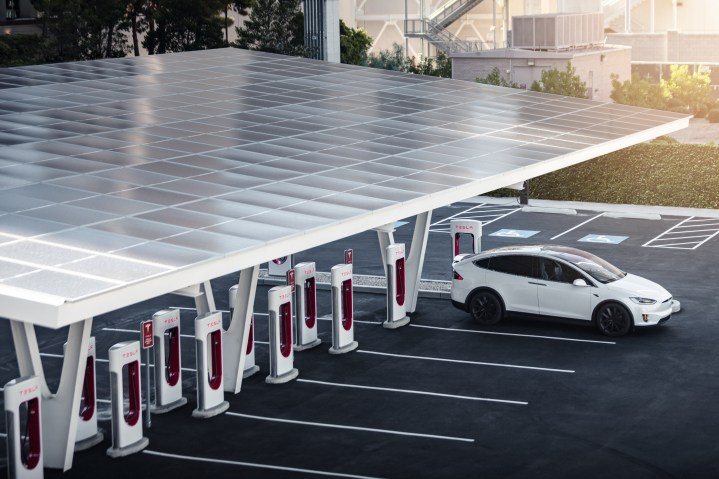 alt text: A Tesla vehicle charges at a Supercharger station.
alt text: A Tesla vehicle charges at a Supercharger station.
How Does Wireless Car Charging Work?
Wireless EV charging operates on the same principle as wireless phone charging: electromagnetic induction. A transmitter (charging pad) with a magnetic coil sends an electrical current to a receiver (built into the car’s undercarriage), also equipped with a magnetic coil. When these coils align, the current flows, initiating the charging process.
Implementing Wireless Charging for EVs
For home use, a large charging pad would be installed in your garage or carport, connected to your home’s power supply. The power output would depend on whether the pad is simply plugged in or hardwired. The challenge lies in integrating receivers into EVs. Currently, no commercially available EVs have built-in inductive charging receivers. As wireless charging becomes more mainstream, manufacturers will need to incorporate this technology, ideally with standardized designs.
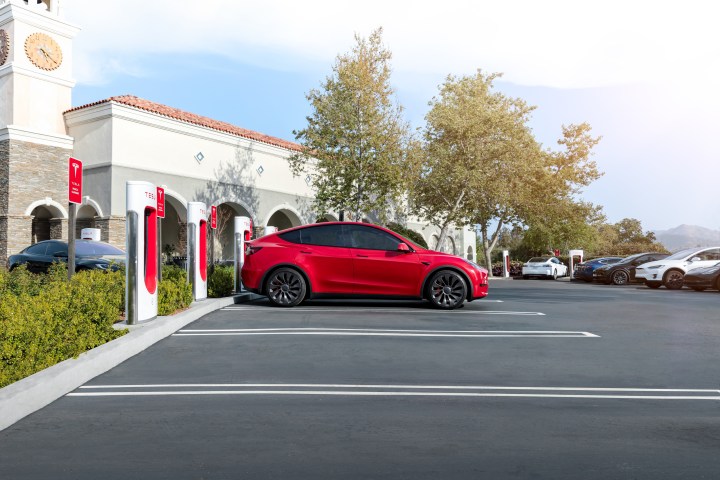 alt text: A red Tesla car charging at a Tesla Supercharger station.
alt text: A red Tesla car charging at a Tesla Supercharger station.
The Potential for Increased Convenience
Wireless charging holds the promise of a significantly more convenient EV ownership experience. Imagine simply parking your car and having it charge automatically, eliminating the need to plug in. Widespread adoption in parking lots and other public spaces could dramatically reduce range anxiety, allowing drivers to top up their batteries effortlessly.
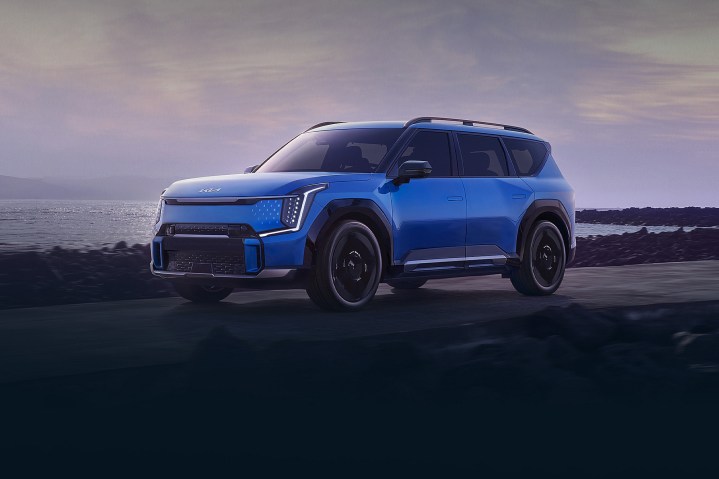 alt text: A Kia EV9 electric SUV.
alt text: A Kia EV9 electric SUV.
The Futuristic Vision of Wireless Charging Roads
While still a distant prospect, the concept of wireless charging roads represents the ultimate solution to range anxiety. Imagine driving on roads that continuously charge your EV, eliminating the need for charging stops altogether. Although this technology faces significant technical and logistical hurdles, it offers a glimpse into a future where EV range is no longer a limiting factor.
Wireless Charging Speeds and Costs
Wireless charging speeds are surprisingly comparable to current wired solutions. Existing technologies have achieved charging speeds of up to 20 kilowatts, equivalent to a Level 2 charger. Future advancements could further enhance these speeds.
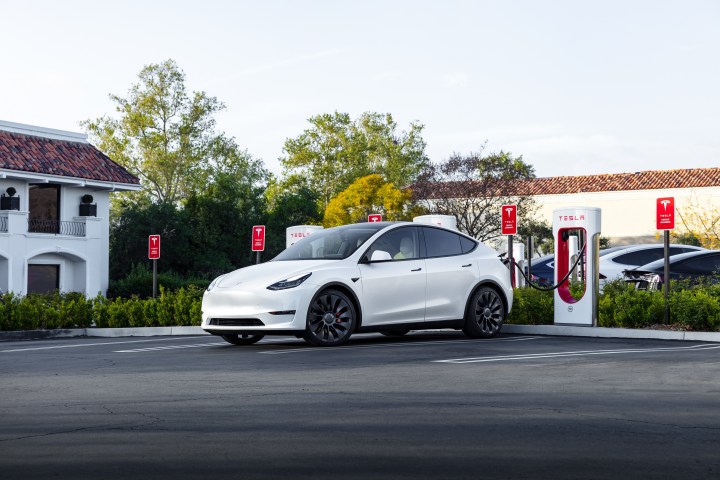 alt text: A white Tesla vehicle charging at a Tesla Supercharger station.
alt text: A white Tesla vehicle charging at a Tesla Supercharger station.
Key Considerations for the Future
The widespread adoption of wireless EV charging hinges on several factors, primarily cost. The affordability of home charging systems and the ability of manufacturers to balance cost with charging speed will be crucial. While some drivers may prioritize fast charging, others may be content with slower overnight charging. The evolving needs and preferences of EV owners will shape the future of this promising technology.



